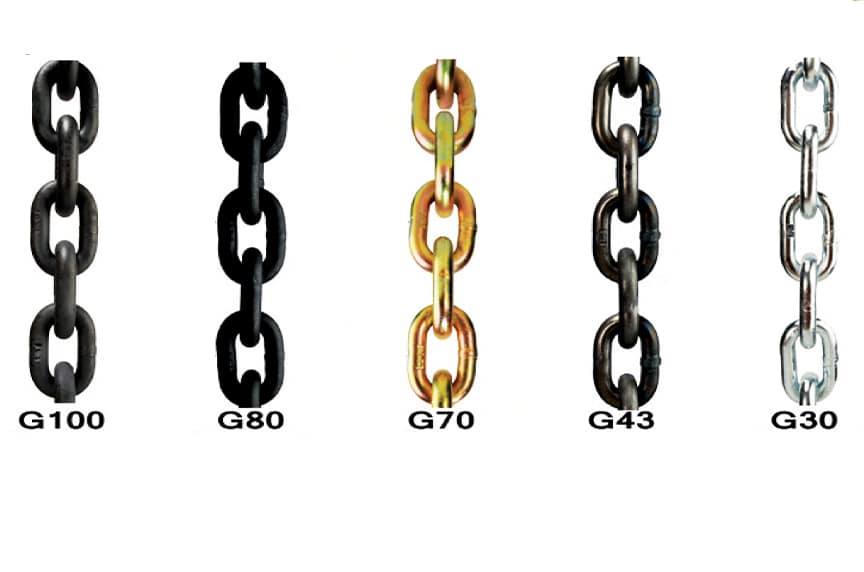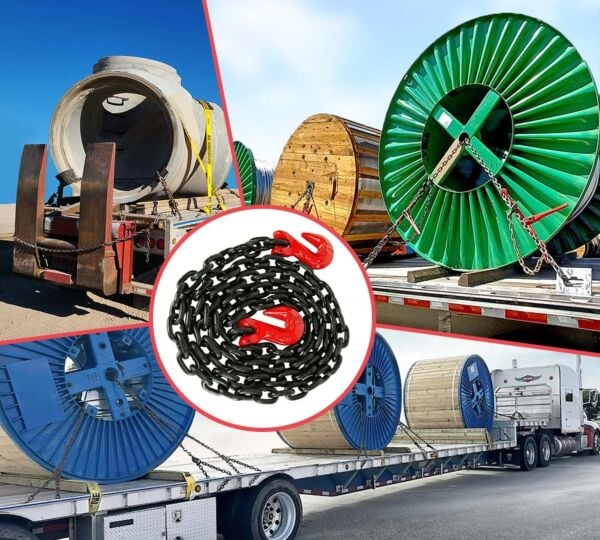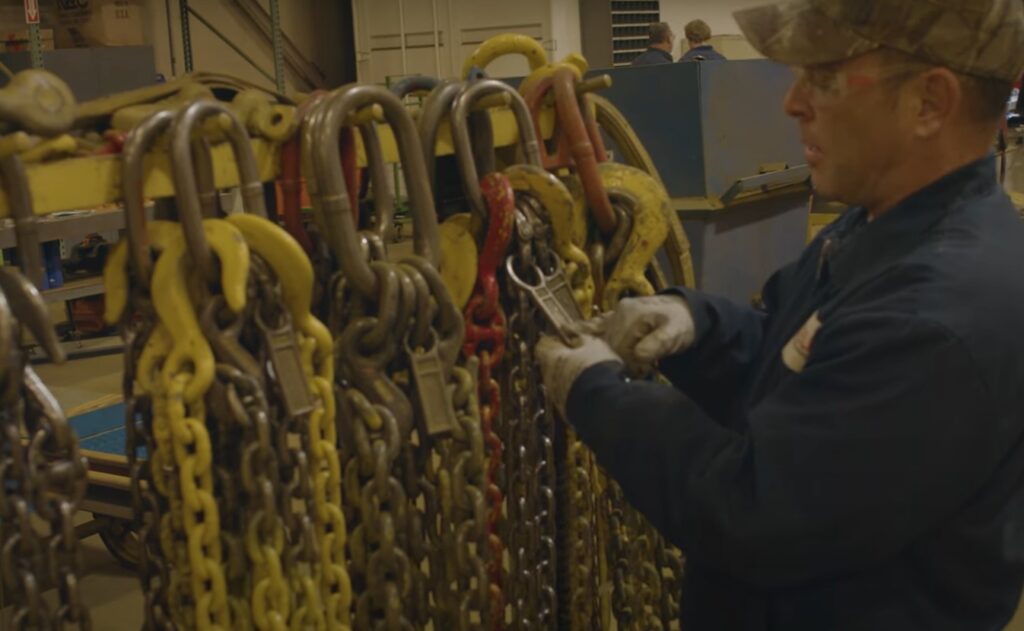G80 chains can be confusing, especially when you see different prices. It’s important to understand why there are differences in price so you can make an informed decision when you buy. In this article, we will look at the key factors that affect the price of G80 chains so you can get the best chain for your money.
G80 chains are priced based on things like the quality of the material, the way they are made, and how much people want them. The stronger and more durable the chain, the more it costs. Safety is also a factor in the price. When you understand these things, you can make a better decision and get the best chain for your money.
As we go through this article, we will look at trends in the market, technical specifications, and what affects the price of G80 chains. This will help you make a better decision when you buy.
What’s the Deal with G80 Chain Ratings?

G80 chains are rated for strength and load-carrying capacity. These ratings are important because they tell you whether the chain will work for your application. G80 chains are popular because they are strong for their size. This makes them great for heavy-duty applications like lifting and securing loads.
G80 chains are rated according to international standards. These standards make sure the chains meet certain safety and performance requirements. Understanding these ratings helps you choose the right chain for your needs. This will help you work safely and efficiently.
What is the Safety Factor of G80 Chains?
G80 chains have a safety factor of 4:1. That means they can handle four times the maximum load they’re rated for. This is important in high-stress environments like construction and shipping, where failure can cause serious accidents or lost cargo.
For example, if a G80 chain has a working load limit (WLL) of 10,000 kg, it should be able to handle loads up to 40,000 kg without breaking. Knowing the safety factor helps you choose the right chain and comply with industry regulations, which makes your workplace safer.
What’s the Difference Between G80 and G100 Chain?
G80 chains are used a lot, but G100 chains are better because they can lift more weight. G100 chains are made from a higher grade of steel and are tested more, so they can lift heavier loads.
Whether you use G80 or G100 chains depends on what you’re doing. G80 chains are cheaper for regular lifting, but G100 chains are better for lifting really heavy stuff when you need to be safe and sure. Knowing this helps you buy the right chains for what you do.
What’s the Best Chain for Lifting?
When it comes to lifting, the strongest chain you can get is a G100 chain. It has the highest tensile strength and is the most resistant to wear and tear. This makes it ideal for heavy construction and industrial applications where you need a chain that can handle extreme conditions.
However, G80 chains are still very popular because they have a great strength-to-weight ratio and are versatile. They can secure loads in a variety of situations from transportation to construction. Knowing the strengths and weaknesses of each type of chain will help you choose the right one for your specific needs.
G80 Chain Market Trends
The G80 chain market is booming, thanks to trends in a few different industries. Flatbed truckers are using G80 chains more and more to secure their loads because G80 chains are stronger and last longer than lower-grade chains.

Another trend is customization. Manufacturers are making G80 chains to order for different industries. For example, the mining industry uses G80 chains for lifting systems and friction hoists. G80 chains are versatile.
Another trend is maintenance and inspection. As more companies realize how important it is to take care of G80 chains so they last longer and are safer, they are checking them more often.
What Affects the Price of G80 Chains?
To make the best purchasing decisions, you need to understand what affects the price of G80 chains. Here are the main things to consider:
- Quality of the Material: G80 chains are made from high-strength alloy steel, and the quality of the steel used affects the price. The better the steel, the longer the chain will last and the better it will perform.
- How They’re Made: G80 chains are made using advanced manufacturing processes, including heat treatment, which makes them stronger and more resistant to wear. These extra steps in the manufacturing process can increase the price.
- Chain Size: Chains with higher working load limits or larger sizes will cost more because they require more material and engineering.
- Supply and Demand: If there’s a lot of demand for G80 chains, especially if the supply can’t keep up, the price will go up. If demand drops, the price will go down.
- Who You Buy From: Established brands often charge more because they’re known for being reliable and for making high-quality products. Lesser-known manufacturers may charge less, but you might not get the same level of quality.
- Special Features: If you want chains with special features, like a corrosion-resistant coating or a custom length, you’ll pay more.
By understanding these factors, you’ll be able to make better decisions about what you buy and how much you spend.
G80 Chain Technical Specifications
G80 chains are made to certain technical specifications that make them work better in different situations. Some of the main specifications are:
- Material: G80 chains are made from a special kind of steel that is very strong and lasts a long time.
- Strength: G80 chains have to be able to hold at least 80 kilonewtons per square millimeter (kN/mm²) before they break. This makes them good for heavy-duty jobs.
- Working Load Limit (WLL): The WLL of G80 chains depends on the size and how they’re made, so it’s important to use the right chain for the job.
- Standards: G80 chains meet standards like ASTM A391, which means they’re safe and good quality.
These specifications are important because they help G80 chains work well in tough places while still being safe and reliable.
How to Keep Your G80 Chains in Good Shape
To get the most out of your G80 chains, you need to take care of them. Here are some things you should do:
- Check them out: Look at your chains regularly to see if they’re worn out, bent, or damaged. That way, you can catch any problems before they get worse.
- Clean them: Keep your chains clean and free of junk or stuff that can make them wear out faster. Use the right cleaning stuff and don’t use anything that’ll mess up your chains.
- Lube them: Put the right kind of lube on your chains to make them slide better and last longer. When you do that, your chains will work better and last longer.
- Put them away: Keep your chains in a dry, cool place so they don’t rust or get messed up. If you’re going to put them away for a long time, put something over them to keep them safe.
Do what the people who make them say: Always do what the people who make your chains tell you to do. That way, you’ll be safe and do what you’re supposed to do.
When you do these things, you’ll be able to count on your G80 chains to work right and keep you safe.
Summary
G80 chain pricing is something procurement managers need to understand. By looking at material quality, market trends, and technical specifications, buyers can make sure they’re spending their money wisely on high-quality chains that meet their needs. As G80 chains continue to be a big part of many industries, knowing what’s going on with prices and how to take care of them is important for long-term success.



